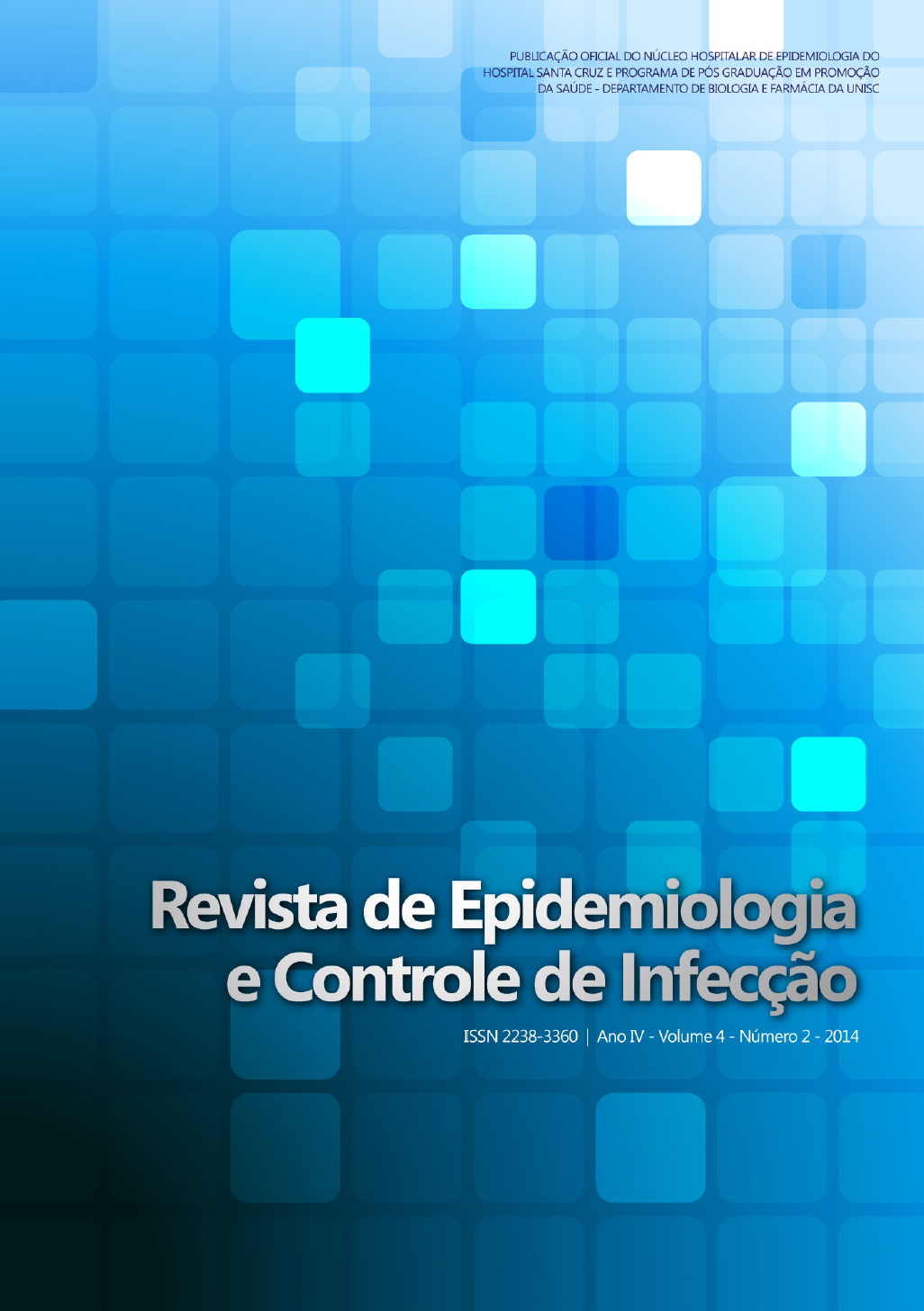Epidemiology of tuberculosis in the municipality of Contagem, Minas Gerais, Brazil, between 2002 and 2011
DOI:
https://doi.org/10.17058/reci.v4i2.4411Abstract
Backgound and Objectives: Although there are technological resources that can control tuberculosis, there is no perspective of getting its eradication in Brazil in the near future. Epidemiological studies can provide important support for policies for disease prevention. This study analyzed the epidemiology of tuberculosis in the municipality of Contagem, Minas Gerais State, Brazil, between 2002 and 2011. Methods: Epidemiological, longitudinal, descriptive study. Data were obtained from the Brazil National Health Surveillance System. Incidence rate and average rate were calculated and stratified analysis by gender, education, age, year of occurrence and morbidity aspects were conducted. Results: 1336 new cases of tuberculosis were recorded in this period. There was a higher incidence of tuberculosis among men (2.1:1), individuals with low education and age group over 60 years (39/100.000). Pulmonary tuberculosis was the most prevalent form (p < 0.001). An association of TB with other diseases was identified, mainly alcoholism (52.96 %) and SIDA (26.95%). During the period assessed, there has been increasing use of Directly Observed Treatment, with an average percentage of 29.2%. The average cure rate and the abandonment of treatment were 69.12% and 6.19%, respectively. Conclusion: The epidemiology of tuberculosis in the investigated municipality showed that the control of this disease depend on social investments in communities more vulnerable to it, as education programs, improving men access to health services associated with professional training, improvement of the information system about it and better integration of tuberculosis and SIDA programs with the treatment and prevention of alcoholism. KEYWORDS: Neglected Diseases. Primary Health Care. Tuberculosis.Downloads
Downloads
Published
How to Cite
Issue
Section
License
The author must state that the paper is original (has not been published previously), not infringing any copyright or other ownership right involving third parties. Once the paper is submitted, the Journal reserves the right to make normative changes, such as spelling and grammar, in order to maintain the language standard, but respecting the author’s style. The published papers become ownership of RECI, considering that all the opinions expressed by the authors are their responsibility. Because we are an open access journal, we allow free use of articles in educational and scientific applications provided the source is cited under the Creative Commons CC-BY license.


